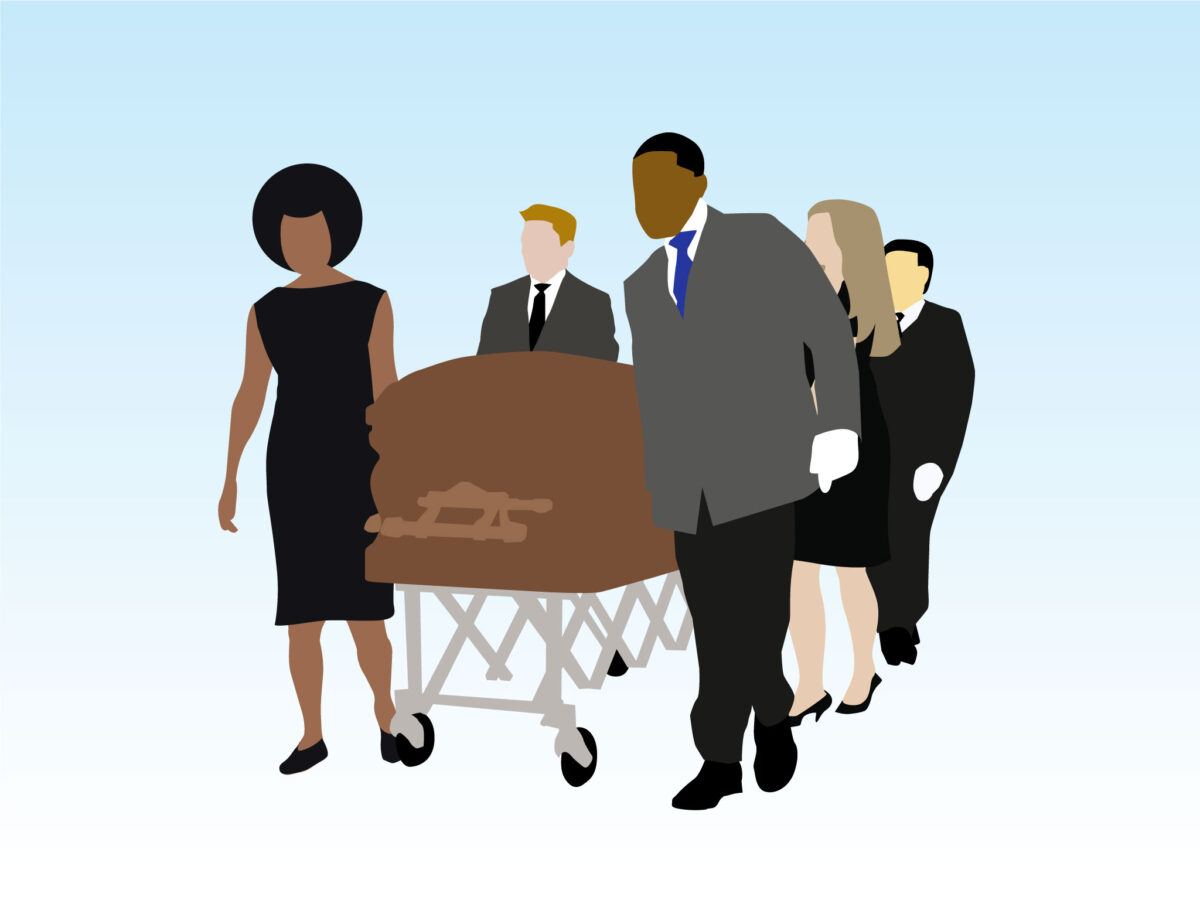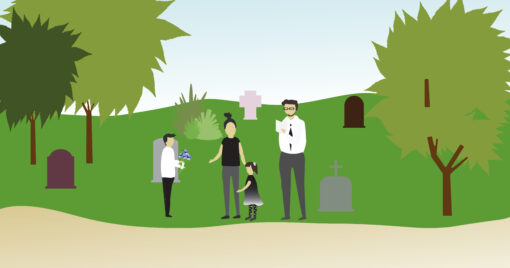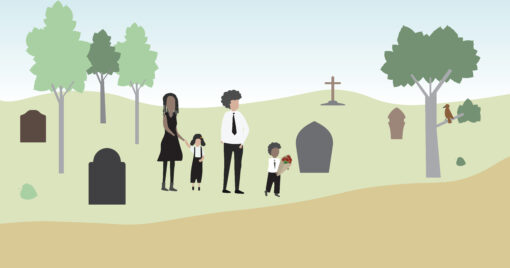
BAO COVID-19 Q&A
These are answers to questions received from bereavement sector licensees as part of the BAO Registrar’s COVID-19 Update, on April 1, 2020 — presented via webinar.
Thank you to our licensees for their ongoing vigilance. Thanks to the OACFP for hosting this webinar.
Note: The BAO’s COVID-19 web section is updated several times a week – often daily – with the latest Registrar’s Directives, Notices and relevant information.
Yes, of course. You must provide whatever information is available to ensure that cemetery staff can prepare and take precautions to ensure that their staff are kept safe, and any other relevant information. Common sense prevails. There is no requirement to provide cause of death unless it could be detrimental to the operator and the staff.
Cemeteries must be able to operate seven days a week. Whether you need your cemetery office open 24/7 is up to you.
It would be appropriate during this pandemic to keep suitable records.
Government of Canada website. Links to government and the World Health Organization are on the BAO’s COVID-19 web section.
Maintenance is essential if it would affect the safety and operation of the cemetery.
(This was well covered in the presentation, Registrar’s Directives and the BAO web.) 10 is the max – for the entire funeral home (not counting funeral home staff). Try to have fewer. Follow the rules – Registrar’s Directives, laws, rules, personal protective equipment (PPE). You don’t want this in your funeral home, family, or community. Thank for your work during this pandemic.
As the pandemic increases, the government can be expected to take additional measures to stop the spread of COVID-19. The cemetery is private property and so an operator can make appropriate restrictions. The Premier of Ontario’s order has restricted gathering in cemeteries to 10 individuals. Cemeteries can ban visitors, if they choose. The Province is in a State of emergency. As a licensee, you are well within your rights to manage your own establishment in compliance with all applicable laws.
It can be safe – but only if you are sure the deceased was not a COVID-19 victim. Respiratory droplets can be released from the deceased’s body. The COVID-19 virus stays alive for three to seven days.
Negotiate if appropriate. The Chief Coroner (Ontario) is moving to inform families that they must identify where their deceased loved ones are to go for funerals. Families will have to choose a nearby funeral home immediately – this is a state of emergency.
Death certificates are under the Vital Statistics Act. Currently death certificates are not issued by funeral homes. This is being looked at by government and the Chief Coroner.
They should not. There is a danger to them in doing so. It is strongly recommended that families also maintain the two-metre rule when viewing their deceased family member. These are tough times for all.
A cemetery operator can refuse to allow access to any one if they have a safety concern for themselves, their staff or the public.
You can cover your costs and must be able to justify the additional costs. Read the BAO’s April 30 Notice to the Profession.
Yes. Only licensed individuals, or those under a physician’s direction, have been recommended to do this. The BAO hasn’t yet had to suspend family-led death care. But, no one (or very few) is interested in doing this now. The Muslim community, for example, has received the BAO’s direction very well on this matter (as posted on the BAO’s COVID-19 web section).
The Registrar expects that both funeral establishment operators and cemetery/crematorium operators will use disinfectants on the casket prior to hand off from one to another. This is, and must be, routine practice.
You may adapt your process for selling and issuing Interment Rights If, and only if, ordered to by the Premier of Ontario’s Order or Registrar’s order. The plan for this mass grave must be filed i.e. approved by the Registrar.
Yes, there is still a need for all required and proper documentation. The Chief Coroner of Ontario is working on an electronic death certificate to expedite this process. Coroner’s Cremation Certificates are already issued electronically.
Arrangements for burials and appropriate PPE must be negotiated at the time of scheduling the burials. Funeral establishment operators deliver the casket to the grave and have little or no contact with the cemetery staff. Once the funeral establishment staff and family leave then only will the cemetery staff approach and lower the casket. The casket can be disinfected before any contact. But please, work together to ensure maximum safety for all.
Yes.
Yes. And yes. Better to be safe than sorry. Ask the question and note it.
The list of Funeral Directors and all licensed establishments is available on our public website, on the Public Register page. Your professional association is also available for connections.
Yes, but only if you can do this safely. As much as possible, please follow the rule of two staff when transferring decedents.
At this time, it is even more important that informed authorizations and consents are received. They may only be disregarded if the Premier of Ontario, Coroner, the Registrar, or Courts issue an order to proceed without family/next-of-kin consents.
The World Health Organization guidance is on our website, on the COVID-19 web section under Links, plus is available on the WHO’s website.
Contact your Ontario Works providers in advance. Note: If and when the pandemic increases to a stage when this is not possible, the Premier of Ontario, Coroner, the Registrar or Courts will issue relevant orders to proceed.
There is no suspension of the Expected Death In The Home (EDITH) program at this time. However, remember it is your responsibility to ensure that the COVID-19 virus does not infect others because of your activities. EDITH is under the jurisdiction of the Ministry of Health. We will inform you if this program is suspended.
No. Ensure that before you touch a body that you have the authorization from the requester. This includes confirmation on who will pay for the removal/transfer.
At this time: : Do not transfer, delay preparation or dispose of a body without the proper/correct authorizations and consents. Should the need for consents and authorizations be ordered waived – only then can you proceed with any of these activities
The instruction is to proceed with as many full body interments and cremation interments and scatterings as soon as possible WITH the proper consents and authorizations. This includes interment of, and interment/disinterment of, cremated remains. This is to avoid any backlog. It must be done with the consent of the interment rights holders.
No, you cannot under normal circumstances deny a next-of-kin’s right to identify the deceased. However, it might depend on the situation. You may, if the family was present and/or gave consent when the body was placed in the bag or placed in a cremation casket and there is suitable identification attached.
This not in place as yet. It will be for all decedents.
Ask the question/demand an answer.
Funeral establishment operators are to ensure that licensed staff deal with consumers using price lists and contracts etc. It may in the future come to be that pre-planners are used in case of extreme or justifiable situations.
Contact your local Medical Officer of Health for more information immediately, Infected staffers, and those in contact them, must be isolated. Funeral Establishment MUST be totally disinfected and all staff may be required to be tested in order to be able to re-open. There is a risk to your establishment.
Not at this time.
They should wear PPE for sure!
With the families’ consent and if the ground conditions are safe for excavation you may use another previously planned and laid out area of the cemetery. Ensure that proper records are referred to and maintained.
Yes. Families are not expected to pay for services that are not provided. Reimbursements and credits will have to be made. Business losses may be addressed with the federal and provincial government agencies.
Yes, but this is not recommended. Talk to the family about this in light of the State of Emergency and pandemic. A spread of the COVID-19 virus in your funeral establishment might result in your establishment being closed down for a long period of time.
No. The 10 maximum directive means 10 people for the entire funeral home facility, not counting funeral home staff. This is a strict rule by necessity. Public and staff safety are paramount. Try to have fewer than 10 in your funeral home.
Remember, funeral homes are subject to the government’s law and risk of civil lawsuits if they are not complying fully with the 10-max directive and law of the land.Consider what happened in Newfoundland, where 75 per cent of COVID-19 cases in the entire province have been traced to one funeral home. Now all funerals and visitations have been banned there.
No. That would enable potential spreading of COVID-19 in cars, or in lines. This is a tough directive. A necessary one. Please ensure strict compliance. The financial and physical penalties apply even to the Directors of the Company. Thank you.
Each baby or child counts as one person. Please aim for 10 or fewer in your funeral home. This is about minimizing the risk of spreading COVID-19. It spreads easily.



